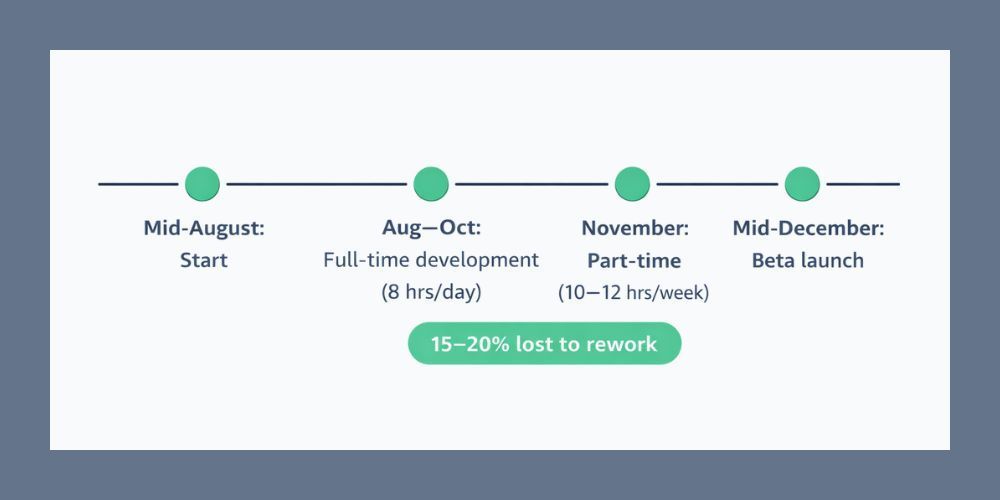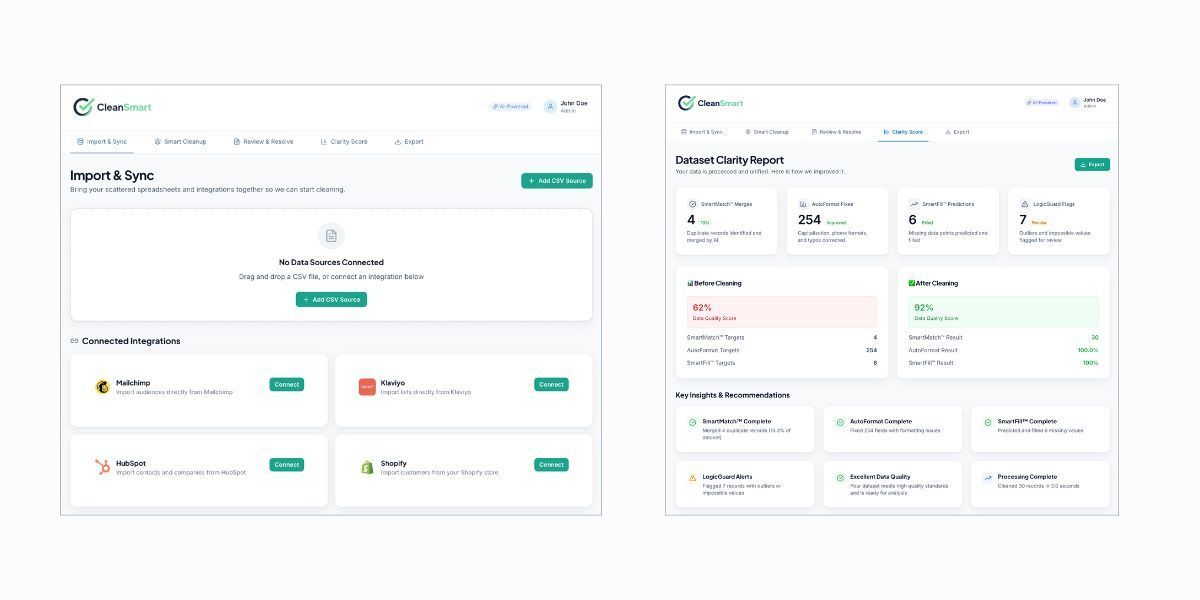Dark MarTech: Hidden Tools Marketers Use to Gain an Edge
The world of marketing technology (MarTech) is vast, offering thousands of tools designed to help brands automate, analyze, and optimize their efforts. While platforms like HubSpot, Google Analytics, and Salesforce dominate conversations, there is an underground layer of MarTech—often referred to as "Dark MarTech"—that operates in the background, quietly giving savvy marketers a competitive edge.
Unlike mainstream solutions, these lesser-known tools specialize in advanced personalization, competitive intelligence, and automation. They often provide highly specific capabilities that traditional platforms lack, allowing marketers to refine their strategies with precision. By leveraging these hidden tools, brands can enhance audience engagement, streamline operations, and uncover insights that lead to smarter decision-making. So, what exactly are these Dark MarTech tools, and how can they help your business? Let’s explore.
Note: This article is based on independent research, and I have no affiliations or financial ties with any of the companies mentioned.

The Appeal of Hidden MarTech Tools
Many businesses rely on popular platforms because they are widely known, feature-rich, and easy to implement. However, these solutions often come with limitations, particularly when it comes to niche capabilities like hyper-personalization, real-time data intelligence, or automation at scale. This is where Dark MarTech comes into play.
Hidden MarTech tools provide depth rather than breadth, allowing marketers to dive deeper into specific aspects of their strategies. Instead of trying to be a one-size-fits-all solution, they focus on refining audience segmentation, automating complex processes, and unlocking competitor insights that would otherwise remain undiscovered. By incorporating these tools, marketers can track behaviors more effectively, test new engagement strategies, and optimize campaigns with unmatched efficiency.
Advanced Personalization and Audience Insights
Personalization has become a cornerstone of digital marketing, yet many brands still struggle to go beyond basic segmentation. Traditional platforms offer general personalization features, but Dark MarTech tools take it a step further by using AI-driven insights and behavioral analytics.
One such tool is Mutiny, which enables businesses to personalize website experiences dynamically based on visitor behavior. Unlike traditional A/B testing, which requires significant time and effort, Mutiny’s AI-driven platform allows marketers to create personalized content variations in real-time. This level of customization is invaluable for B2B companies looking to tailor messaging based on industry, company size, or browsing behavior.
Another hidden gem in this space is Clearbit, a real-time data enrichment tool that enhances lead data by pulling in firmographic, technographic, and behavioral insights. By integrating with platforms like Salesforce, Marketo, and HubSpot, Clearbit allows brands to create highly targeted campaigns that resonate with the right audience at the right time. Instead of relying on outdated or incomplete customer data, marketers can leverage Clearbit’s intelligence to craft hyper-personalized experiences that drive engagement and conversions.
Hidden Analytics and Competitive Intelligence
Understanding what competitors are doing has always been a challenge, but Dark MarTech tools make it easier to gain valuable insights into their strategies. Traditional analytics platforms provide basic competitor benchmarking, but lesser-known tools can uncover deeper data that gives businesses an edge.
SparkToro is a powerful audience research and social listening tool that helps marketers identify where their target audience spends time online. Instead of relying solely on Facebook and Google data, SparkToro analyzes niche communities, podcasts, and publications that influence specific industries. This allows brands to refine their content distribution strategies and engage with their audience in more meaningful ways.
For businesses focused on search engine marketing, SE Ranking is an underrated tool that provides detailed competitor tracking for SEO and PPC strategies. It monitors keyword rankings, backlinks, and paid search campaigns, giving brands real-time insights into their rivals’ performance. By understanding which keywords and ad strategies competitors are using, marketers can adjust their approach to stay ahead.
Automation and Growth Hacking Solutions
Automation has become essential for scaling marketing operations, but mainstream platforms often lack the flexibility needed for sophisticated workflows. Dark MarTech tools offer innovative ways to streamline processes and maximize efficiency.
One standout tool in this space is Phantombuster, which automates lead generation, social engagement, and data extraction. Whether it’s scraping LinkedIn for potential prospects, monitoring Twitter interactions, or automating outreach campaigns, Phantombuster helps businesses execute growth strategies at scale without manual intervention.
For brands investing heavily in paid advertising,
Adzooma offers a robust AI-driven platform that streamlines campaign management across Google, Facebook, and Microsoft Ads. By analyzing ad performance in real-time, Adzooma provides actionable insights to enhance targeting, optimize bids, and improve creative execution. With its automated recommendations, brands can maximize ad efficiency and budget allocation without the need for constant manual intervention.

Ethical Considerations and Risks
While Dark MarTech tools provide undeniable advantages, they also come with ethical considerations and compliance risks. Many of these tools operate in gray areas of data collection, competitive intelligence, and automation, making it essential for marketers to use them responsibly.
Regulations such as GDPR and CCPA have introduced stricter guidelines on how customer data is collected and used. Businesses leveraging these tools must ensure they comply with privacy laws to avoid potential legal issues. Over-reliance on aggressive automation or undisclosed data tracking can also lead to brand trust issues, damaging relationships with customers.
To navigate these risks, marketers should adopt transparent data practices, clearly communicate how customer data is used, and ensure compliance with industry regulations. Ethical MarTech adoption is about enhancing marketing strategies without compromising user privacy or trust.
How to Identify and Leverage Hidden MarTech for Your Business
If you’re considering integrating Dark MarTech tools into your strategy, start by conducting an audit of your existing marketing stack. Identify gaps in personalization, analytics, or automation, and explore tools that address these specific needs. Testing niche solutions through pilot programs can help determine their effectiveness before committing to full-scale implementation.
Staying informed about emerging trends is also crucial. MarTech is evolving rapidly, with new tools constantly entering the market. Keeping an eye on innovative startups and industry reports can help you discover the next hidden gem before it becomes mainstream.
Finally, focus on integration. Dark MarTech tools work best when they complement existing platforms rather than replace them. Ensuring seamless connectivity between different tools will help maximize their impact and prevent data silos.
Dark MarTech isn’t about secrecy—it’s about smart, strategic adoption of lesser-known tools that provide a competitive advantage. Whether it’s refining personalization, enhancing analytics, or automating complex workflows, these hidden gems can transform how businesses engage with their audience and optimize their marketing efforts.
As the MarTech landscape continues to evolve, staying ahead means being willing to experiment with new solutions. By incorporating Dark MarTech tools into your strategy, you can uncover opportunities that traditional platforms miss and position your business for long-term success. The question is—are you ready to explore the hidden side of MarTech?
What is Dark MarTech, and how is it different from traditional MarTech?
Dark MarTech refers to lesser-known or hidden marketing technology tools that provide competitive advantages in personalization, analytics, and automation. Unlike traditional MarTech platforms, which are widely recognized and used, Dark MarTech tools often specialize in niche functionalities, offering deeper insights and more sophisticated automation capabilities.
Are Dark MarTech tools legal and ethical to use?
Most Dark MarTech tools are legal, but ethical considerations depend on how they are used. Businesses must ensure compliance with regulations like GDPR and CCPA, especially when collecting and analyzing customer data. Transparency in data usage and responsible automation practices are key to maintaining ethical standards.
How can businesses integrate Dark MarTech tools into their existing strategy?
Businesses should start by auditing their current MarTech stack to identify gaps in analytics, automation, or personalization. Once gaps are identified, testing and integrating Dark MarTech tools that complement existing systems will help maximize their impact. Ensuring seamless integration and data flow between platforms is crucial for optimizing results.
Author: William Flaiz










